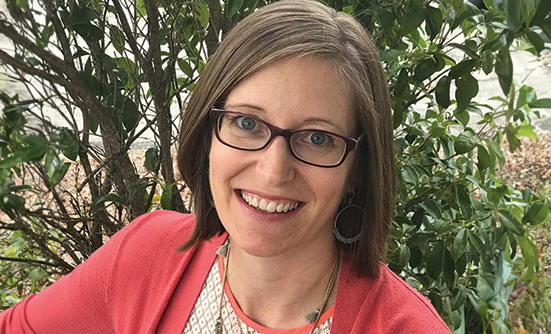Lung cancer treatment side effects can be difficult to manage for some patients. Among the complex and varying treatment effects that lung cancer patients experience are nutrition-related side effects. These can include nausea, vomiting, constipation, diarrhea, fatigue, altered taste, decreased appetite, and difficulty swallowing, to name just a few. According to Tasha Feilke, MS, RD, CSO, a registered oncology dietitian at Savor Health, eating a well-balanced diet before, during, and after treatment can help you to maintain strength during treatment and feel better through recovery and survivorship.
When patients struggle with nutrition-related side effects, eating a healthy, well-balanced meal can be a great challenge. It’s important to reach out to your oncologist or your oncology dietitian so they can work with you to adjust your diet to help you maintain a healthy body weight, manage your side effects, and help you feel your best. As a nurse navigator, I am able to identify patients who are experiencing nutrition-related side effects and utilize our team’s dietitian as a resource to get patients back on track nutritionally. Advising the provider and advocating for management of patient side effects are very necessary. The goal is that patients feel their best during treatment.
I recently sat down with our dietitian, Melanie Sanders, RDN, LD, to discuss the management of nutrition-related treatment side effects that may affect lung cancer patients. She also offered awesome resources that can help you make better dietary choices during your cancer journey.

Navigator: Should I change what I eat before starting cancer treatment?
Melanie: It depends on what your current eating patterns are and if you currently have symptoms, such as decreased appetite. Overall, eating a healthy balanced diet, including fruits and vegetables, and paying extra attention to protein-rich foods may be helpful. All nutrients are important during treatment, but protein in particular helps to rebuild and repair cells.
Navigator: Could I boost up my nutrition prior to treatment?
Melanie: Yes, boosting your nutrition prior to treatment is beneficial, especially if you currently have appetite loss, as we would not want to see weight loss before treatment. Nutritional supplements, such as an oral nutrition supplement drink, may be helpful in that case.
Navigator: Is it okay to diet during chemotherapy or other treatments (cutting out carbs or limiting calories)?
Melanie: Being on a restrictive diet to lose weight during treatment is not recommended, and to think of chemotherapy as a diet is definitely not a good idea (but unfortunately it is sometimes mentioned by patients). Diets usually entail lots of restrictions, and the goal is weight loss. We are not aiming for weight loss during treatment. When people lose weight, especially quickly, they are losing lean body mass, and during treatment that’s not good. Maintaining lean body mass can help us stay strong and feel our best through cancer treatment.
Navigator: If hydration is hard for patients, what can I do to make sure I get enough fluids?
Melanie: My first recommendation is to see how much you are currently drinking. Sixty-four fluid ounces a day is a general goal, but drinking more may be required. Liquid with some flavor or carbonation may be easier to drink if plain water is not tolerated. Try adding fruits or vegetables along with an herb or spice to water, or make a decaffeinated flavored tea. Experiment to see what works best for you. Cold, room temperature, or warm. Small sips throughout the day or drinking a certain amount within a short time frame. Make sure you bring water with you on your chemotherapy and doctor appointment days. If you are going to be outside in the heat or exercising, be sure to increase fluids to prevent dehydration.
Navigator: Are there any changes in my diet that I can make to minimize treatment side effects?
Melanie: Yes, across the board, many people find eating small, more frequent meals to be beneficial. This can help with nausea, low appetite, or feeling full quickly. To manage constipation, increase fiber foods, ensure you get enough hydration, and incorporate gentle physical activity. Diarrhea can be managed by limiting insoluble fiber like green leafy vegetables and whole grains. Soluble fiber (foods like oatmeal) may actually improve diarrhea. Make sure that you rehydrate as well. With dry mouth or taste changes, consider your oral care routine. Try rinsing your mouth before and after meals but do not use a mouthwash with alcohol. For decreased red blood cells, depending on the cause, eat protein foods like meats, poultry, fish, beans, and liver meats to provide iron. With low white blood cell counts, eating a variety of nutritious foods and protein foods is supportive, but more importantly, consider good hygiene and food safety practices.
Navigator: Are there any dietary tips for hair loss?
Melanie: I am not aware of a specific diet to prevent hair loss during treatment, but after treatment a balanced diet can help with hair growth.
Navigator: Cancer treatment may cause decreased appetite; how can I be sure that I am getting the calories I need?
Melanie: Eating small, frequent meals can be a helpful way to ensure you are eating enough when your appetite is low. Sometimes going without meals can actually reduce hunger rather than increase it. It may be beneficial to come up with a set schedule, as oftentimes we cannot rely on our natural hunger cues during treatment. Having small meal and snack ideas down on paper can be helpful, and it is something you can share if neighbors or relatives want to pick up things from the grocery store for you. You should always have a list to quickly let them know what you need.
Navigator: Radiation treatment can cause throat irritation and make it hard to swallow. What can patients eat if they are experiencing radiation symptoms?
Melanie: Soft foods and beverages are very important if it is painful to swallow. A smoothie, premade supplement drink, bone broth, or glass of milk are liquid options. Ideas for soft foods include pudding, soup, yogurt, applesauce, casseroles, eggs, ground or shredded meats, oatmeal, and cooked vegetables that can be mashed.
Navigator: Some patients like eating out; is this okay during treatment?
Melanie: Eating out on a regular basis can sometimes be a challenge during treatment. Most fast-food items are high in sodium, sugar, and saturated fats, which are sometimes not tolerated well. Look for baked meats and vegetables. Ask the server to put sauces on the side. Lower the risk of possible food contamination by avoiding salad bars and buffets or by asking that food be prepared fresh at a fast-food restaurant.
Navigator: Are there any suggestions for diets that help to prevent future cancers?
Melanie: Yes! The American Institute for Cancer Research has cancer prevention recommendations and shares research related to cancer and nutrition.2 They discuss specific foods as well as suggestions to help individuals eat the “New American Plate,” which focuses on eating a mostly plant-based, whole foods diet. They have a 12-week “new plate” challenge you can sign up for on their website that includes weekly e-mails and group interaction on social media.
References
- American Cancer Society. Food Safety During Cancer Treatment. www.cancer.org/content/cancer/en/treatment/survivorship-during-and-after-treatment/staying-active/nutrition/weak-immune-system.html.
- American Institute for Cancer Research. Our Cancer Prevention Recommendations. www.aicr.org/learn-more-about-cancer/infographics/our-cancer-prevention-recommendations.html.












